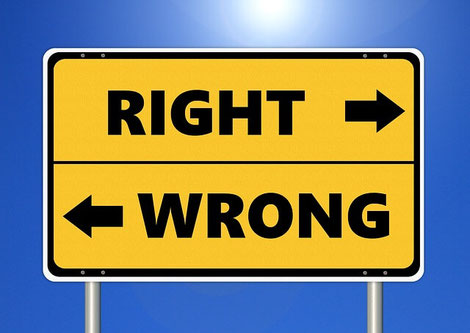
Imagine you are a member of a cult that believes the world will end at a specific time on a specific day. How do you respond when the world doesn’t actually end?
Do you acknowledge you were spectacularly wrong? Or do you perform some spectacular mental gymnastics and say that actually, you weren’t wrong at all?
In 1954, celebrated psychologist Leon Festinger investigated this idea by observing a group of cult members who believed the world would end on December 21 and that they, the faithful few, would be rescued at midnight by flying saucers.
The cult members had a lot invested in this idea. Many had quit their jobs and given away their possessions. So, there was stunned silence as midnight passed without any sign of the flying saucers. By 4am, the cult leader began to cry.
At 4.45am, however, she apparently received a new message saying the God of Earth had decided to spare the world from destruction. Because of their devotion, this little group had saved the planet.
Festinger called this an example of cognitive dissonance – that is, the psychological stress and discomfort you feel when you are simultaneously entertaining two opposite and inconsistent ideas.
In this instance, there was an obvious inconsistency between what the cult believed (that they would be rescued on flying saucers before the world ended) and what they were witnessing (no flying saucers, no end of the world). They could have resolved their dissonance by changing their beliefs and by admitting they were wrong.
However, that would have been psychologically painful, as they had so much invested in their beliefs. Accordingly, they enthusiastically bought into the new prophecy that they had saved the planet.
This is an extreme example, but all of us know what it is like to experience cognitive dissonance. Cognitive dissonance is uncomfortable and stressful for the brain. Thus, when we make mistakes or do something that conflicts with our values, we may try to rationalise or minimise our actions so we don’t feel bad about ourselves.
Psychologists Carol Tavris and Elliot Aronson, authors of the book Mistakes Were Made (But Not by Me): Why We Justify Foolish Beliefs, Bad Decisions, and Hurtful Acts, note that these kind of self-justifications are how even ‘charlatans, scammers, and tyrants sleep at night’.
A more everyday example of cognitive dissonance would be a student who has a test tomorrow but who is binge-watching TV instead of studying. The best way the student can resolve the dissonance they feel is by changing their behaviour (by studying). Less helpfully, they could change their belief (“the test won’t be too bad, I’ll cram in the morning”).
SMOKING

Another obvious example is smoking. Tobacco kills up to half its users, and the fact that smoking is dangerously unhealthy will cause mental discomfort for any smoker. You can resolve this discomfort in several ways – by changing your behaviour (stopping smoking), by changing your beliefs (“smoking isn’t that bad, I know a 90-year-old man who smokes every day”), or by minimising it (“I don’t smoke that much and I do lots of healthy activities”).
The best option, obviously, is to quit. The second-best option: if you don’t quit, just accept the dissonance and say, “Yes, I smoke, even though smoking is very bad for me and I worry about it. I wish I didn’t smoke, but I do”.
It’s important to be honest with ourselves, whether about exams, smoking or whatever the particular situation is. We all rationalise on occasion, but too much rationalising can negatively impact mental health. It prevents us from taking responsibility and keeps us stuck in unhealthy thinking and behaviour patterns.
When we rationalise, we try to justify or explain away behaviours that are in conflict with our values. The problem is, it doesn’t really work, and can lead to feelings of guilt, shame, or self-doubt.
Being honest with ourselves, resisting the temptation to rationalise when faced with uncomfortable situations – it can be difficult. In my next column, I’ll offer some advice on this subject, including on how to help people who may not be acting in their own best interests.